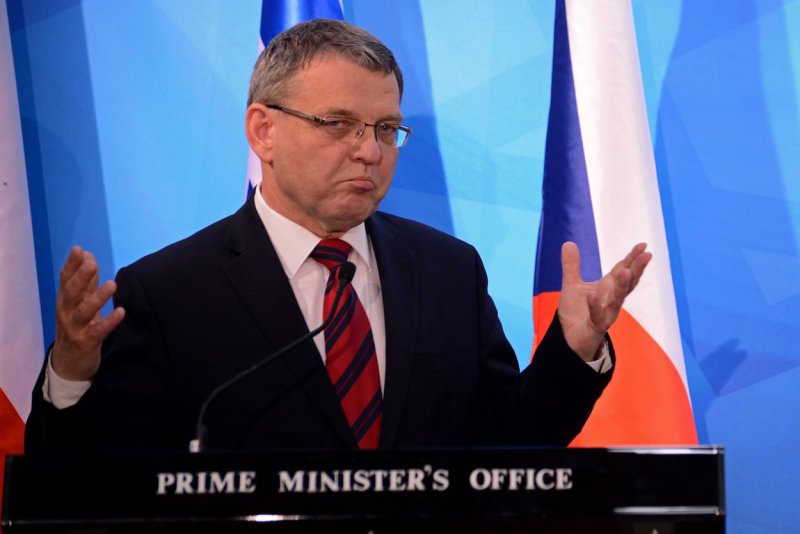Czech Republic Foreign Minister Lubomir Zaoralek said Tuesday its email system was hacked by another government similar to last year’s breaching of Democratic National Committee emails. File photo by Debbie Hill/UPI |
License Photo
Feb. 1 (UPI) -- The Czech Republic said that its email system was hacked, that it appears to have been done by a foreign government, and resembles the hack of the Democratic National Committee.
Foreign Minister Lubomir Zaoralek said in a news conference Tuesday in Prague that the Foreign Ministry's email system was compromised last month but that internal communications, including classified information, appear not to have been breached because they were on a separate system.
Zaoralek compared the hacking to the hack of the Democratic Party and John Podesta, who was Hillary Clinton's campaign chairman, before the 2016 election.
"When I discussed this with the best experts that we have here, they told me that the character of the attack was such that the attack was very sophisticated, that it must have been, according to them, conducted by some foreign state, from the outside," Zaoralek told a news conference. "They also told me that the way the attack was done very much resembles the character of attacks against the system of the Democratic Party in the United States."
Another ministry official – speaking anonymously to The Guardian – confirmed it was Russia.
Prime Minister Bohuslav Sobotka said "the issue has to be thoroughly investigated" because it threatened national security.
Sobotka's private email account was hacked in January 2016, and about 80 emails were posted on an extremist white supremacy website. Also, one month earlier, his Twitter account was hacked and racist comments were posted.
In October, a 29-year-old Russian, Yevgeniy Aleksandrovich Nikulin, was detained by Czech police on alleged hacking. A federal grand jury in California indicted him on charges of hacking computer networks at LinkedIn, Dropbox and Formspring. He remains in custody in Prague but Russian and American authorities want to extradite him.
In the latest hacking, the Guardian reported some emails dealt with the Czech Republic's relations with the North Atlantic Treaty Organization and European Union allies.
Czech government officials have divergent feelings about Russia. Czech President Milos Zeman has called for Europe to drop sanctions on Russia after the annexation of Crimea in 2014. But the foreign ministry wants punitive sanctions on Russia and the interior ministry has accused Russia of attempting to get Czech voters to oppose NATO with misinformation.
Michal Salat, threat intelligence director at Avast, a computer security company, told The New York Times it looks like the hacking was aimed at collecting sensitive information about other countries.
"Regardless of the quality of information that was hacked, political institutions should properly protect all of their accounts, as data leaks always lead to a loss in trust," Salat said. "That it was the Czech foreign minister that was hacked suggests that the attackers were eager to access information regarding other countries."















